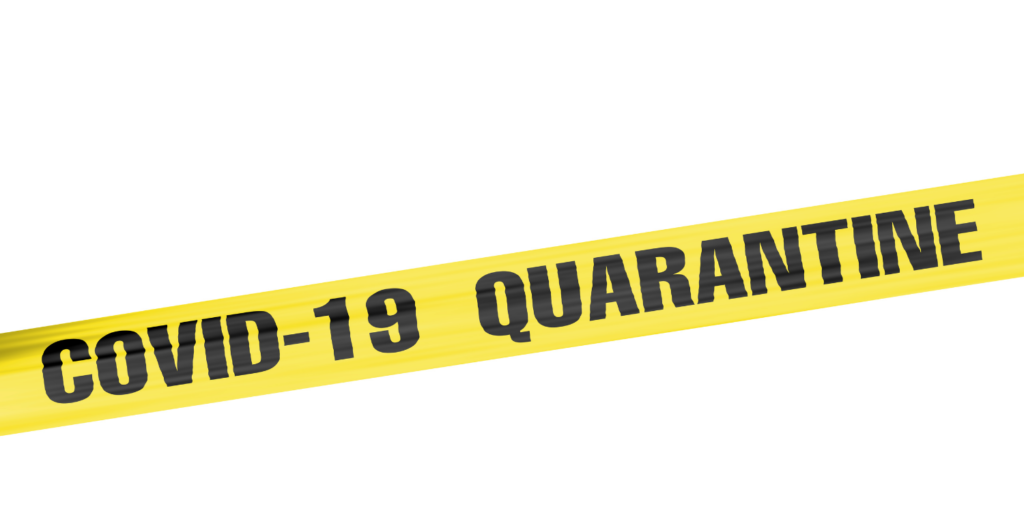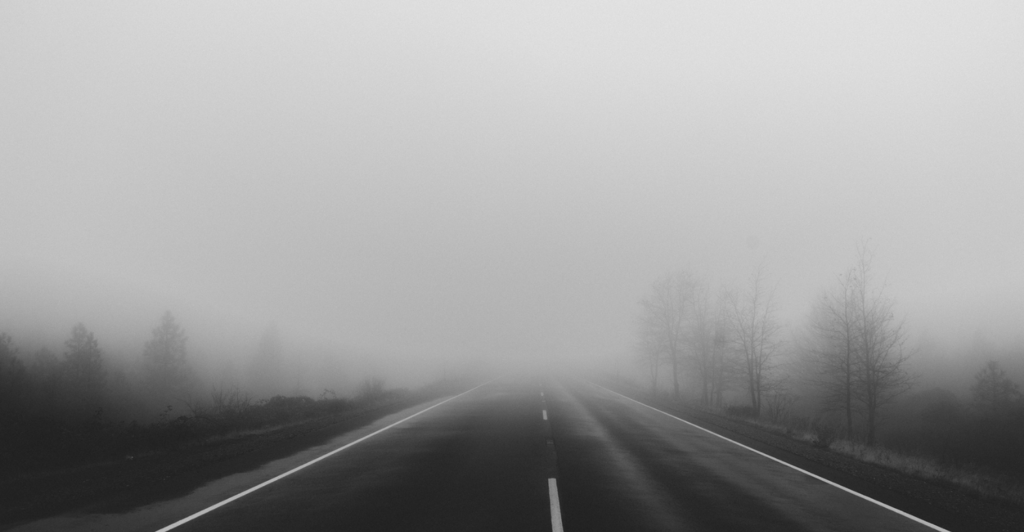How my Bipolar Reacted to my Husband Having COVID-19: Week 1

My husband Bryan tested positive for COVID-19 last Wednesday. He is asymptomatic thus far (yay!). Pearson and I subsequently tested negative (double yay and huh???). Bryan is isolating in the basement that we refinished right before the pandemic hit. We are all stuck in quarantine—until Nov 14 for Pearson and me, and until Oct 31 for Bryan. Yep, the infected person’s quarantine is much shorter! So far we all still love each other. That may change.
All the Feels
I have been feeling a wide range of emotions, with some cycling back on repeat: confusion, anger, joy, fatigue, despair, gratitude, etc. The usual, but with COVID living in our home and being the culprit of these emotions, it makes them feel decidedly unusual. I am surprised that I haven’t cried yet, but I’m sure I will indulge myself before our quarantine ends.
I have not felt any bipolar symptoms of mania or depression. Not that I’m feeling like my usual self—I’m a bit down, as any human being in this situation would be—but I’m not depressed. That also may change.
The morning after Bryan stuck the iPad in my face showing his positive COVID results, I looked out the kitchen window while washing my hands (again). I was oddly startled to see that the sky was still blue. It was a lovely day, sunny with a few perfect clouds. Yellow and orange leaves still fell from our tree in the backyard, and the grass was still green with patches of brown where the lack of rain and summer sun scorched it. Some things were still ordinary and unchanged. I felt content and reassured in that moment. A few tears welled up with relief. It sounds cheesy and simplistic, but it was what I needed.
By later that morning, however, I was so angry that no thoughts could materialize. Only fury lived inside me. I had no desire to express it outwardly in any way. Later, when it passed, I was relieved that the anger stayed inside me and did not poison my family, not realizing that it could have poisoned me. That poison could lead to a bipolar episode, so I need to be even more vigilant.
ALL. THE. THINGS.
As the long 24-day quarantine loomed over me and Pearson, my irrational thinking emerged. The number one irrational thought plaguing me was that if I had known that my husband would get COVID so soon after returning to the classroom to teach, we should have been doing ALL THE THINGS during the pandemic. Never mind that reinfection with COVID is possible after a few months. That was not part of this fantasy.
My family and I should have been having fun without a care in the world (while wearing face masks and washing our hands profusely, of course). We should have been going to museums and signing up Pearson for dance class and soccer, like we planned before the pandemic. We should have gone to all the restaurants (a fancy one on my birthday, just me and Bryan) and dined inside (gasp!) or maybe only dined outside (gasp!). We should have vacationed in our beloved Cape May over the summer. We should have gone to social events we were invited to but shunned. When fall hit, we should have taken Pearson to a local farm and rode on a hayride with a bunch of random parents and kids, some of whom wouldn’t be wearing face masks but would be sitting so close to us that our legs touch. But that’s fine, because we’re outside! Being outside makes people feel safe from COVID, even if said people are practically sitting in your lap.
I realize now that Bryan and I deluded ourselves by thinking that if we were really careful, that if our family went practically nowhere besides work and school and threw in the occasional masked visit with my parents, COVID could not catch us. How stupid we were. How illogical.
All the Anxiety
I’m worried for my husband. He has a benign spinal tumor condition that requires a procedure every 5 months to keep him walking and out of serious pain. If he develops COVID symptoms, then what? What if he is not well enough to travel to Virginia for his procedure? I’m also worried for Pearson. Although many kids who get COVID remain asymptomatic, there are no assurances. In addition, her dad is now living in the basement and has no real contact with her, and her mom is bound to lose her shit at some point. She misses her everyday life filled with school, friends, grandparents, and any other person she can force to socialize with her.

All the Brain Fog
As for me, I am terrified of just one thing if I get this cunning virus: COVID brain fog. Maybe you’re thinking that I should be more afraid of other things (like death???), but hear me out. Symptoms of brain fog include memory loss, confusion, difficulty focusing, dizziness, and grasping for everyday words. “Increasingly, COVID survivors say brain fog is impairing their ability to work and function normally.” I already have a long and exasperating history with brain fog brought on by bipolar disorder. Although I could not dig up any proof that people with COVID x bipolar are more susceptible to brain fog, it seems likely given my past.
Brain fog makes it extremely difficult to work and function in everyday life. At work, as I clicked from one screen to another, as one does a kagillion times a day in a computer-based job like mine, in that split second I would totally forget why I clicked open my email or a spreadsheet. Then I might remember what I was doing only to spend an extraordinary amount of time writing an email, because the words needed escaped me.
Certain medications or illnesses bring on my brain fog. This started a few years ago after a round of steroids (my first and only) to treat cluster headaches, since my migraine meds were not helping. The brain fog lasted a month after finishing the steroids (but my headaches went away!). I have also experienced brain fog after an illness as routine as a stomach virus. Every illness seems to bring on brain fog at this point, so my guess is that COVID would bring on brain fog that could last a really long time, maybe forever. A French report in August on 120 COVID patients who had been hospitalized found that 34 percent had memory loss and 27 percent had concentration problems months later. “Months later” kind of sounds like forever right now.

All the Hope
After several days in quarantine, I finally cried. Remarkably, I wasn’t feeling sorry for myself, at the end of my rope, or worrying about my family or brain fog when the tears flowed. I was crying (and then sobbing) after reflecting on the generosity of our friends. Some friends brought us copious amounts of delicious food, others emailed us gift cards for food delivery, and still others are planning a Halloween parade at our house that Pearson can watch from inside, since she cannot go trick or treating. I feel so humbled and honored to know so many kind, thoughtful people, some of whom don’t even know us that well. They are rallying behind us, and they give me hope. All the things indeed.
How has the COVID pandemic affected your mental health? Tell us in the Comments! And feel free to share this post if you feel so inclined!
